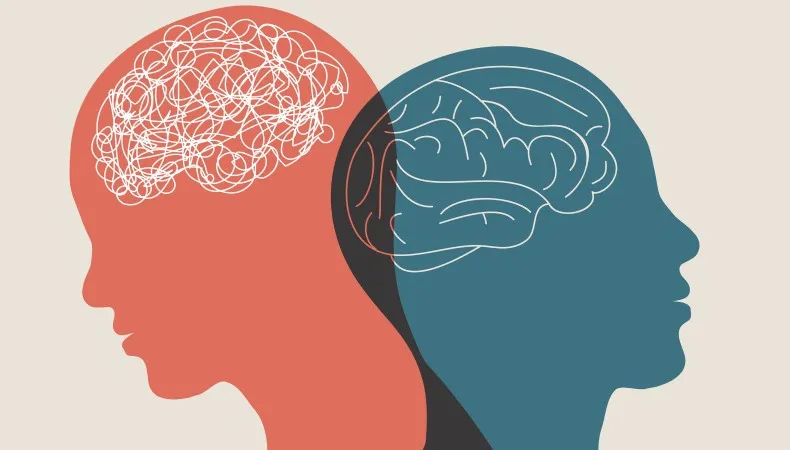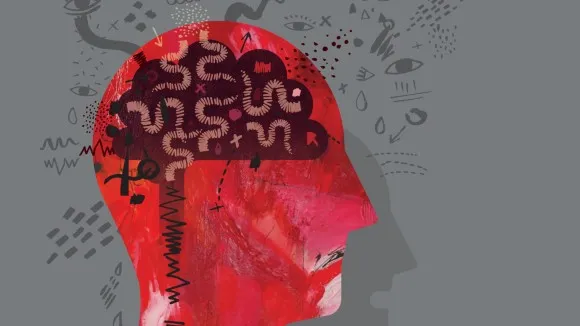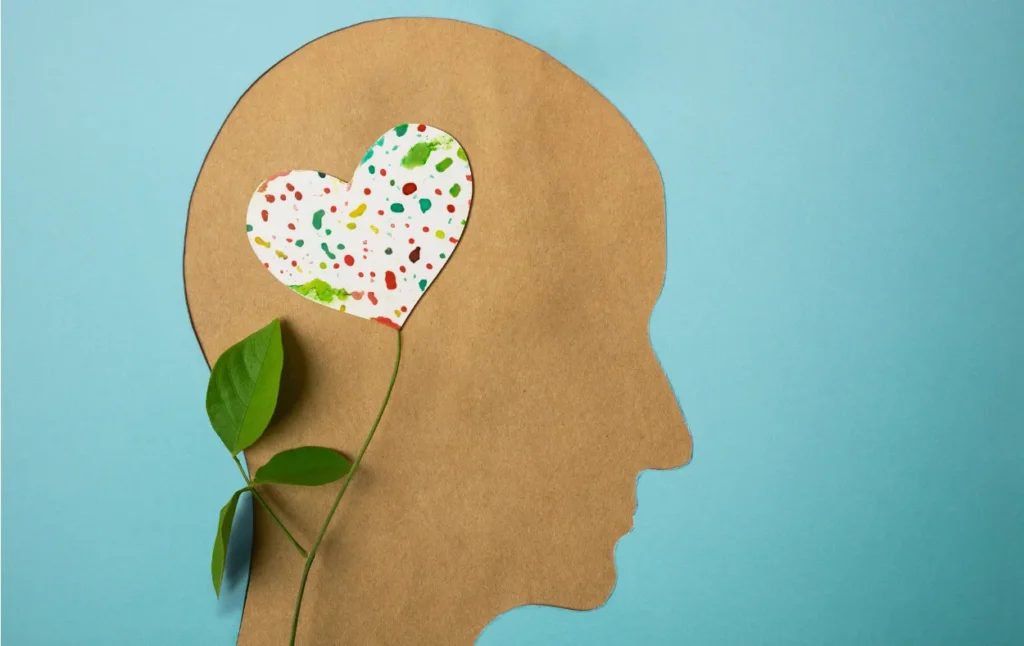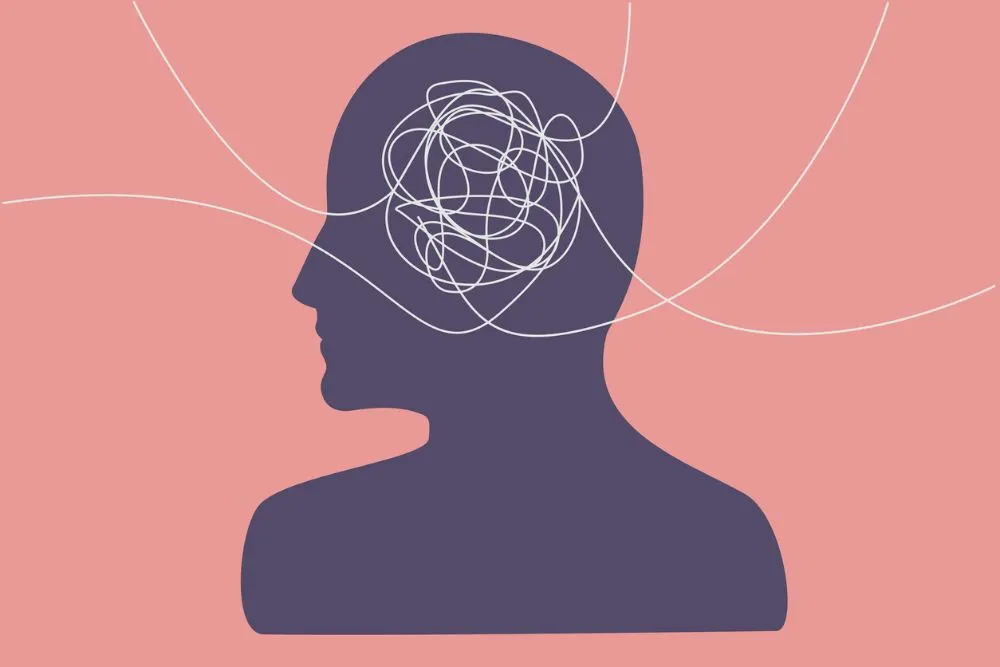This theory, by psychologist Erik Erikson, looks at the effect of social and psychological factors on our well-being. It outlines how our social environment and mental health interact to shape who we are.
This theory shows us the complex mix of our social world, life experiences, and growth. It explains how our mental health is influenced by the people and events around us. Understanding Erikson’s theory helps shed light on how different life stages impact our mental wellness.
The theory is made up of eight stages that cover life from infancy to old age. Every stage brings its own challenges and chances to grow. It’s about needing the right social connections and support. Getting through these stages successfully can build your emotional strength and help you know yourself better.
It’s key to link psychosocial development with mental health. As we move through life, the theory suggests, how we deal with tough times is shaped by our journey. Knowing and working on these links gives us the power to better face the world.
Also, what’s around us has a big impact on how we feel mentally and emotionally. Things like having access to mental health services can really help. So, learning more about the social factors that affect our well-being can guide us to a more balanced life.
Mental health professionals can use Erikson’s theory to improve their services. By considering the social and psychological aspects of a person, they can offer more complete care. This method helps them meet the various needs of the people they work with.

The Eight Stages of Psychosocial Development
Erikson’s model details eight stages that cover a person’s entire life. At each stage, individuals face specific challenges and opportunities for growth. These are deeply influenced by their social environment and the emotional support available to them.
Stage 1: Trust vs. Mistrust
Infancy marks the period when trust is formed with primary caregivers. A consistent, supportive environment is vital for a child’s sense of security. It shapes their view of the world. Encouraging positive interactions and providing responsive care helps in the healthy development of trust.
Stage 2: Autonomy vs. Shame and Doubt
Toddlers greatly value their independence and work towards autonomy. Parents play a crucial role during this stage by fostering a child’s self-confidence. This is done through allowing exploration and validating their emotional needs. Overly critical or restrictive parenting, however, contributes to feelings of shame and doubt.
Stage 3: Initiative vs. Guilt
In the preschool stage, children begin to make decisions and explore their world. It is important to nurture their creativity and support their curiosity. By doing this, a foundation for a positive attitude towards initiative is laid.
Criticism and restrictions on exploration can however evoke feelings of guilt.
Stage 4: Industry vs. Inferiority
Entering school shifts a child’s focus to gaining new skills and competence. During this time, support from teachers and parents becomes a priority. Providing constructive feedback enhances a child’s sense of industry. A lack of support, on the other hand, can result in feelings of inferiority.
Stage 5: Identity vs. Role Confusion
Adolescence is pivotal for exploring identity and one’s sense of self. Positive support from parents, friends, and mentors aids this process. It contributes to the formation of a stable identity. Without solid guidance, adolescents often struggle with confusion and a potential crisis of identity.
Stage 6: Intimacy vs. Isolation
In early adulthood, the formation of intimate relationships becomes important. Satisfying relationships are built upon mutual understanding and emotional support. Without these, feelings of isolation may ensue.
Stage 7: Generativity vs. Stagnation
During mid-life, the focus shifts to contributing to the community and leaving a positive mark. By engaging in productive activities and supporting others emotionally, a sense of generativity is nurtured. Overcoming stagnation requires finding a meaningful and purposeful role in life.
Stage 8: Integrity vs. Despair
Reflection in late adulthood is centred around one’s life achievements and their significance. Those who have a strong support network and feel they have accomplished much are likely to feel integrity. Alternatively, the absence of these feelings can lead to despair and a sense of unfulfilment.
Knowledge of Erikson’s stages highlights the lifelong importance of social interactions and emotional support. These factors are instrumental in fostering personal growth and well-being at different life stages.

The Impact of Psychosocial Development on Mental Health
Our mental health journey is deeply influenced by psychosocial development across our lifespan. This field explores how our psychological and social lives intersect. It underlines the significance of being emotionally strong and mentally healthy.
Being emotionally resilient means we can adapt and recover from life’s hurdles. It leads to better mental health. Through psychosocial development, we pick up skills to manage our feelings, face tough times, and nurture healthy relationships, all key to our well-being.
Psychological well-being covers aspects like self-worth, happiness, and self-forgiveness. It means looking ahead positively, finding life’s meaning, and enjoying fulfilment. It’s built on a solid base of psychosocial growth, playing a huge role in our overall mental health.
The Importance of Emotional Resilience
Emotional resilience enables us to handle ups and downs effectively. It includes learning how to cope, solve problems, and stay positive, which builds mental toughness.
Life throws different events at us as we grow. Navigating these changes while keeping emotionally strong is vital for our mental health.
Enhancing Psychological Well-being
To keep mentally healthy, good psychological well-being is crucial. Psychosocial development equips us with skills that are key to this. These include knowing ourselves, feeling for others, talking effectively, and making deep connections.
A robust psychological well-being improves our self-esteem, resilience, and stress coping skills. It brings more joy, purpose, and peace into our lives.
- Developing self-awareness allows individuals to understand their thoughts, emotions, and behaviours, which leads to better decision-making and improved mental health.
- Empathy helps individuals understand and connect with people, building meaningful relationships and strong social support that’s good for mental health.
- Effective communication empowers individuals to share their needs, fears, and feelings, nurturing healthy relationships and avoiding mental health-harming conflicts.
- Building and keeping up meaningful relationships offer support and a sense of belonging, crucial for our mental health and well-being.
Recognising the link between psychosocial development and mental health leads to better outcomes at individual, family, and community levels. It encourages the focus on emotional resilience and psychological health. This comprehensive mental health strategy helps us weather life’s storms, build strong connections, and flourish at all life stages.
Social Determinants of Psychosocial Well-being
Various factors can deeply affect someone’s psychosocial well-being. These include their financial status, level of education, job, friends, and how they access necessary things. All these elements work together to influence a person’s mental health and life quality.
One crucial aspect of promoting positive psychosocial outcomes is the implementation of holistic care. Viewing health in a holistic way means looking at all areas of a person’s life. Health care providers must consider and address an individual’s physical, mental, emotional, and social needs. This approach helps them see how social factors impact mental health. It leads to better, more complete care.
Mental health services also play a vital role in addressing the social determinants that impact psychosocial well-being. Good mental health support can offer essential help to those who face tough social issues or mental health problems. These services allow people to get stronger, learn to cope, and understand themselves more. This results in better psychosocial health.
Recognising that psychosocial health is influenced by external factors is key for mental health services. Addressing these determinants can make society fairer and more welcoming for everyone. It values a person’s perspective and works on the causes of mental health issues.
Key Social Determinants Affecting Psychosocial Well-being:
- Socioeconomic status: Economic stability, housing conditions, and access to resources.
- Education: Quality of education, educational opportunities, and educational attainment.
- Employment: Job security, workplace environment, and income levels.
- Social support networks: Availability of close relationships, family support, and community engagement.
- Access to essential resources: Adequate healthcare, nutritious food, and safe environments.
Solving these social issues needs everyone to work together. People, health professionals, those making policies, and community groups can join forces. By doing so, we can forge a society that supports the mental and social well-being of all, no matter their background or situation.

Applying Erikson’s Theory in Practice
Experts in mental health are crucial for applying Erikson’s psychosocial stages. They use his theory to guide individuals towards healthy mental and social growth. This understanding is key for effective support.
Erikson’s theory is particularly important in the NDIS. It helps service providers create support plans that look at psychosocial needs fully. This ensures that care is holistic and beneficial for the individual.
Erikson highlights the need for ongoing attention to social, emotional, and identity needs. This matches the NDIS’s goal of empowering people to lead fulfilling lives. Both focus on the value of personal growth and community engagement.
Integrating Erikson’s Theory into NDIS Support Plans
Developing NDIS support plans must address each participant’s unique psychosocial needs. Using Erikson’s model, service providers can pinpoint where an individual is in terms of development. They can then personalise their support.
For infants and young children, the focus should be on creating a safe space. This includes encouraging positive interactions with others. It’s vital for laying the foundation of trust and independence.
For young adults and juveniles, the attention shifts towards self and role exploration. Service providers help them find their place in society. This work guides them in building relationships and finding life purpose.
A support plan must also boost emotional well-being and self-reliance. This is done by creating a supportive environment. It also involves helping people voice their feelings and ensuring they have access to mental health support.
Collaboration and Multi-Disciplinary Approach
Using Erikson’s theory within the NDIS calls for teamwork and a varied skill set. It’s important for service providers to work with psychologists, therapists, and other experts. This cooperation ensures a deep understanding of participant needs.
Together, these professionals develop strategies that nurture complete mental and social growth. Their coordinated work offers a detailed approach to addressing specific needs. It ensures the support plans are finely tuned to the individual.
Including Erikson’s theory enriches NDIS plans, making care comprehensive and centred on the person. By focusing on every participant’s psychosocial needs, NDIS professionals help individuals live a more fulfilling life. They aim to enhance mental health and overall well-being.

18 Comments